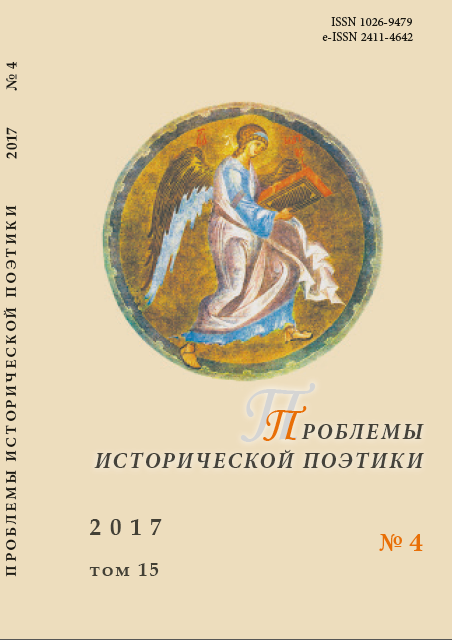Проблема жанра «Правдивой истории Деда Мороза» А. Жвалевского и Е. Пастернак
The problem of the genre of “The True Story of Old Man Frost” by A. Zhvalevsky and E. Pasternak
Author(s): Olga V. ZakutnyayaSubject(s): Christian Theology and Religion, Recent History (1900 till today), Russian Literature, 19th Century, Theory of Literature
Published by: Петрозаводский государственный университет
Keywords: genre; fairy tale; story; calendar prose; Christmas story; yuletide story; New Year story;
Summary/Abstract: “The True Story of Old Man Frost” is basically an attempt to combine a popular description of the history of the country for children and teenagers with artistic narrative; the basis for the latter are the elements of the so-called prose calendar: Christmas and yuletide stories. Using the external attributes of such prose (e. g., the action coincides with a certain time of the year) and adopting its values (the priority of home and family), the authors create internally consistent “myth” of the main new year’s character who becomes a connecting link between generations and a sign of the harmony in society. At the same time, one can notice a certain evolution in the interpretation of the main elements of the calendar prose. The main event at the beginning of the story is the miracle of transformation of the hero, an ordinary person, into the Father Frost, a magician, who gives presents and makes desires come true. However, the motif of helping the poor and disadvantaged, common for the Christmas stories of the 19th and early 20th centuries, is hardly used in “The True Story…”. That allows suggesting the evolution of the content of this kind of prose. As a result, “The True Story of…” can be attributed to the genre of a Christmas fairy tale that combines elements of flash calendar fiction and of a great novel.
Journal: Проблемы исторической поэтики
- Issue Year: 15/2017
- Issue No: 4
- Page Range: 149-164
- Page Count: 16
- Language: Russian

